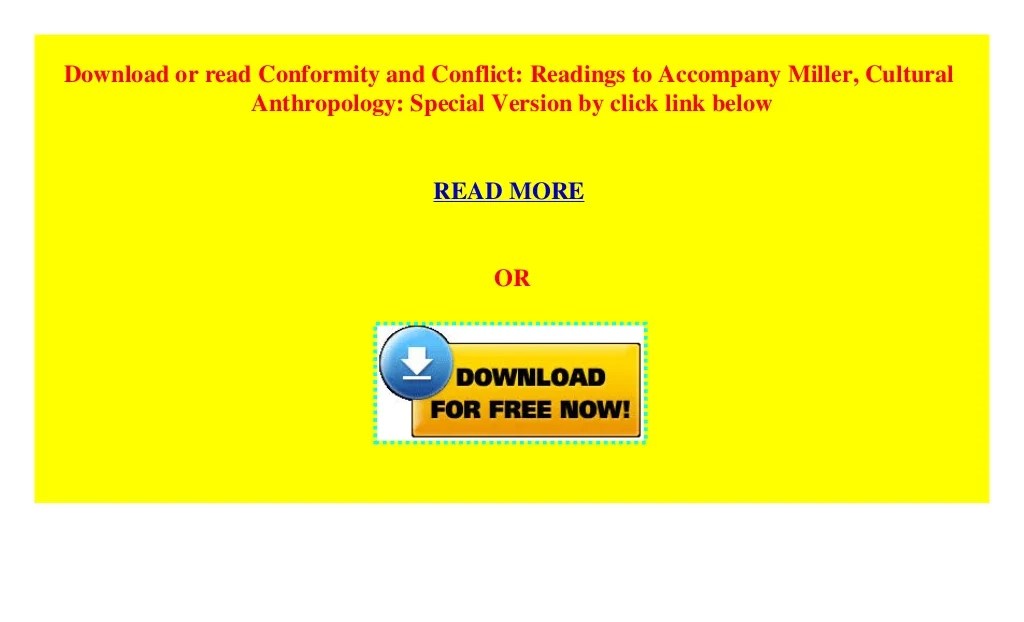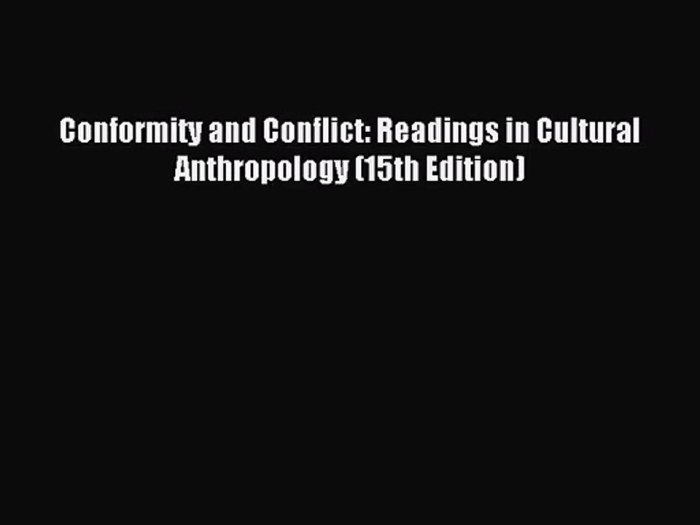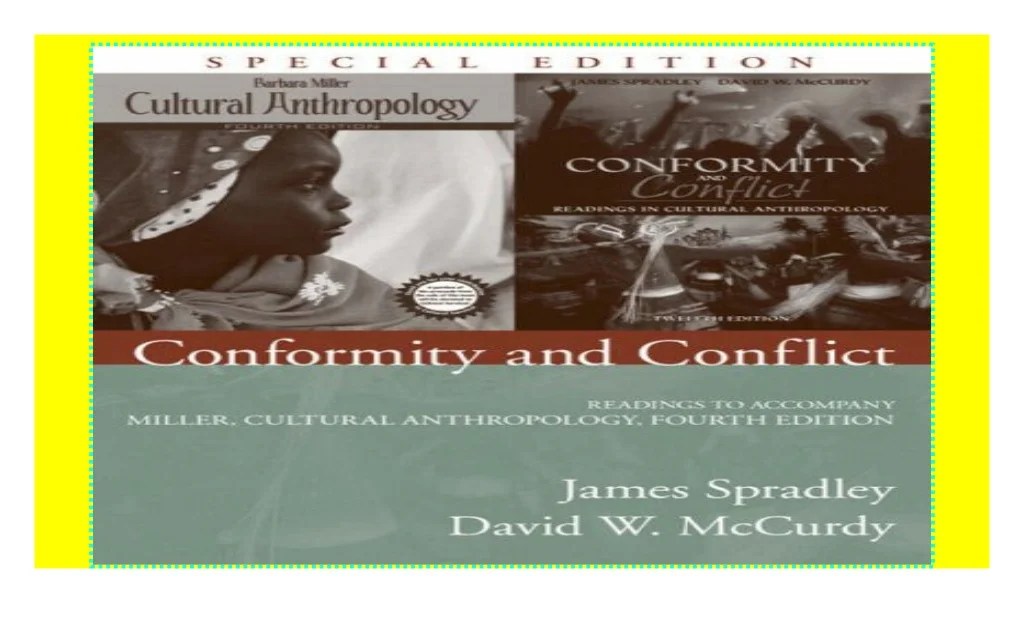Conformity and conflict readings in cultural anthropology 15th edition – Conformity and Conflict Readings in Cultural Anthropology, 15th Edition delves into the intricate interplay between conformity and conflict within diverse cultural contexts. This comprehensive text provides a thorough examination of the causes, manifestations, and consequences of these fundamental social processes, offering invaluable insights into the dynamics that shape human behavior and cultural evolution.
Throughout its chapters, this authoritative volume explores the social and cultural factors that foster conformity, the diverse ways in which it manifests across cultures, and its potential benefits and drawbacks. It also delves into the underlying causes of conflict, its various forms and expressions, and the potential for both positive and negative outcomes.
Definition and Conceptualization of Conformity and Conflict

Conformity, in cultural anthropology, refers to the tendency of individuals to adjust their behavior and beliefs to align with those of the group they belong to. This alignment can manifest in various ways, such as adopting similar values, customs, or norms.
On the other hand, conflict arises when individuals or groups have opposing goals, interests, or values. Conflict can take different forms, ranging from verbal disagreements to violent confrontations.
Causes and Manifestations of Conformity

Social and cultural factors that promote conformity include group pressure, the need for social acceptance, and the desire to avoid disapproval or punishment. Conformity manifests itself in diverse ways across cultures, including adherence to social norms, conformity to group norms, and conformity to authority figures.
Positive Consequences of Conformity
- Social harmony and stability
- Shared values and sense of community
- Reduced social anxiety and increased self-esteem
Negative Consequences of Excessive Conformity
- Suppression of individuality and creativity
- Resistance to change and innovation
- Groupthink and decision-making errors
Causes and Manifestations of Conflict: Conformity And Conflict Readings In Cultural Anthropology 15th Edition

Underlying causes of conflict in cultural contexts include competition for resources, differences in values and beliefs, and social inequality. Conflict can manifest in various forms, including verbal disputes, physical altercations, and organized violence.
Positive Consequences of Conflict, Conformity and conflict readings in cultural anthropology 15th edition
- Cultural growth and change
- Resolution of social tensions
- Strengthening of social bonds
Negative Consequences of Unresolved Conflict
- Social division and polarization
- Violence and destruction
- Long-term social trauma
Questions and Answers
What is the main focus of Conformity and Conflict Readings in Cultural Anthropology, 15th Edition?
The text explores the causes, manifestations, and consequences of conformity and conflict within diverse cultural contexts.
How does the text approach the study of conformity?
The text examines the social and cultural factors that promote conformity, the diverse ways in which it manifests across cultures, and its potential benefits and drawbacks.
What is the significance of studying conflict in cultural anthropology?
Understanding conflict is crucial for comprehending the dynamics of cultural change, the resolution of social tensions, and the maintenance of social order.